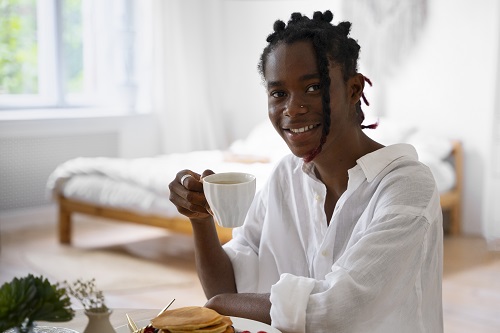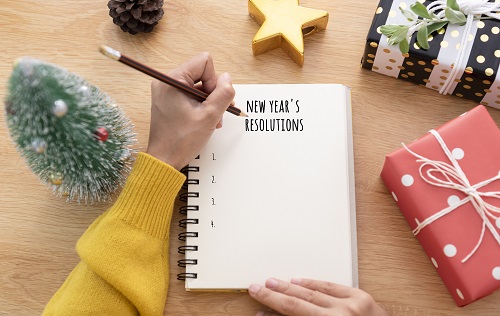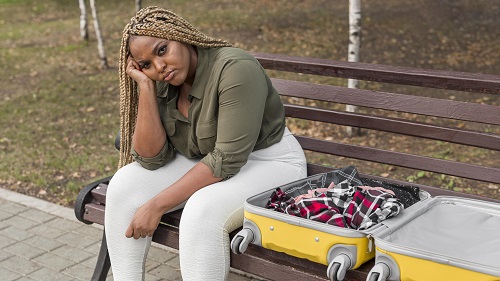How many “thank yous” are possibly too many to express gratitude towards a friend, loved one, colleague, or family? Some would say a closed mouth is a closed destiny, but what you weren’t told is practising gratitude is the fastest way to lose friendships and favours.
While some people naturally show gratitude, others struggle with this simple gesture.
I love to say thank you even for the littlest thing you can imagine. I thank the security at the mall, my hairdresser, my tailor, my Uber driver, and the shipping attendant.
It has become a part of me that it flows easily. Expressing gratitude isn’t something I rack my brain around. It’s a habit I built over the years, which has stuck with me for the longest time.
It has also helped me a lot to build new friendships and strengthen old ones.
Showing gratitude has enormous benefits to mention a few such as improving your self-esteem, building friendships, promoting empathy, etc.
In this article, I will share some insights on the benefits of showing gratitude and practical tips on practising gratitude and mindfulness for a better and improved quality of life.
Also Read: 10 Ways To Stick To New Year Resolutions
Benefits Of Practicing Gratitude
The benefits of practising gratitude are enormous. It helps build friendships, improve physical health, and enhance self-esteem.
Here is a detailed summary of some of the benefits of practising gratitude.
It Builds Friendships
I knew someone who claimed that he never said “sorry” and “thank you” his entire life. I don’t see how he copes in friendships but I would assume that he would have back-and-forth and petty fights over something as tiny as “thank you”.
Not expressing thank you in my opinion reeks of pride and arrogance. Even the President of the world usually says thank you to his cabinet members. How much more is an ordinary person?
On the other hand, would you rather let a good friend walk out through the door because your ego would let you show an atom of gratitude? That would be such a display of arrogance and self-sufficiency.
Life isn’t that complex, right? A little “thank you for being my friend” can be all the glue needed to create a solid bond with your friends.
Let’s paint a picture! Imagine you have a friend, let’s call her A who shows appreciation for the tinest things. And there’s another friend B, who doesn’t show a single sign of gratitude. No thank you notes or messages. Who are you likely to gravitate towards? I guess the answer is obvious.
If you struggle to keep friends, maybe it’s time to look inward. Are you team “no thank you” or that friend who sees and appreciates tiny gestures? This may be the missing puzzle to your desire to build long-lasting friendships.
Improve Your Physical Health
You’re probably rolling your eyes wondering about the correlation between gratitude and health. Drawing from my experiences, if I feel some type of way and I realise I haven’t appreciated my friends enough in a long while.
Just texting or calling them always makes me feel lighter and relieved. Nobody says practising gratitude would heal you of blood issues or fix your fractured joint.
The point is that a constant practice of gratitude would make you feel lighter and relieved, free from all forms of anxiety.
Improve Your Mental Health
A clearer mind is a happy soul. If you think the last line isn’t true, think about the last time you had to deal with anxiety, troubles and the like.
How did that affect your relationships and your overall well-being?
This is exactly the kind of trouble you’d face if you didn’t have the habit of practising gratitude.
For instance, a friend or partner constantly complains about your lack of gratitude. He/she doesn’t feel seen or appreciated. How would that make you feel? Troubled, right?
Maybe you express gratitude behind his/her back or are not vocal enough about it.
Would you rather watch the fire burn than vocalising gratitude? I would assume that you love peace so you’d practice showing gratitude.
Promotes Empathy
Practising gratitude is simply telling others you’re grateful for their ability to do what you couldn’t do for yourself. It merely means that you see and recognise these gestures as extraordinary and heavenly.
Expressing gratitude also means that you have empathy for others. It also reeks of putting yourself in their shoes and treating them exactly how you’d love to be treated.
The more you practice gratitude, the more you gravitate towards others emotionally with kindness.
Let’s face it! It takes an emotionally intelligent and present person to see the kindness of others. It means you’re not entitled and self-centred. The more you practice gratitude, the more empathy and compassion you build for others.
Enhance Self Esteem
If you struggle with feeling good about yourself, and having better self-esteem, the missing puzzle to improving your self-worth might be practicing gratitude.
The hard truth is that practising gratitude isn’t just about the other person, it is also about you. It takes a healthy amount of self-awareness to acknowledge the goodness of others in your life.
So each time you express gratitude, you feel your self-esteem jar and build a positive self-image. This positive self-image illuminates you to be a better person.
From my experience, each time I send a gratitude note to a friend or a colleague, I feel empowered and self-elevated. I feel good about myself and that helps me to see the good in others.
How To Practice Gratitude And Mindfulness
Just like any habit, practising gratitude and mindfulness is a gradual process. Especially for people who are not natural at these things. It requires intentionality and self-consciousness.
Some people have this easily while others need to learn this habit. If you fall in the latter, here is a better approach to becoming a person of gratitude.
Journal
This is a common gratitude exercise to master practising gratitude and mindfulness. It’s simple and can be done by anyone. Although, it’s not something I indulge in. I am more of a spontaneous person. Once it hits me that I should appreciate someone, I do that right way without a second thought.
If you’re like me, this may not be your cal. But for people who need an extra push and don’t quite grasp what to do.
Get a jotter to start documenting all the things you’re grateful for. This could be life, an easy job, a friendly colleague, a kind boss, etc. Put down all of these things to build a gratitude journal.
You can also write down your gratitude for your friends and significant partner. This will help you to practice gratitude without feeling like a fraud.
Gratitude Jar
Practising gratitude and mindfulness is easier with a gratitude jar. A gratitude jar can be a box, a bag or a container. Every day, pick a piece of paper and write down the things you’re grateful for and put them in this jar.
Every time you feel unmotivated, you can fall back to this jar to fuel your drive.
Write A Gratitude Letter
This is my favourite thing to do. Sending letters of gratitude to my friends and others I feel indebted. I love to write a lot because the more I scribble down these things the more I remember all the things they have done.
Writing a letter might seem old-fashioned but you can replace this with writing on your notepad or create a Google Doc to pen down your feelings.
Focus On Others
Practising gratitude is about others. It’s about making others feel seen and important. Hence, it’s important to practice gratitude in a way that makes the recipient feel seen and loved.
You can do this by expressing gratitude in their love language. For instance, if your significant other loves gifts and words of affirmation, let your gratitude gesture be tilted towards this direction.
Buy them gifts in appreciation for all that they have done for you. Send them words of affirmation to appreciate their presence and contributions in your life.
Let the whole gesture and fanfare be tailored to what they would naturally like and appreciate.
Share Gratitude With Others
While it’s great to tell your significant ones how you feel about them, it’ll make an even greater impact to share this feeling with others. Let others know how you feel about your friends and everything that matters to you.
This is also a great avenue to attract respect and admiration for your friends from other people.
Conclusion
When you incorporate the habit of practising gratitude into your daily life, it makes maintaining relationships and building new ones smooth and easy. Don’t be part of the “no thank you” bandwagon. Let your friends feel seen and appreciated by implementing the gratitude exercise I have shared in this article.







